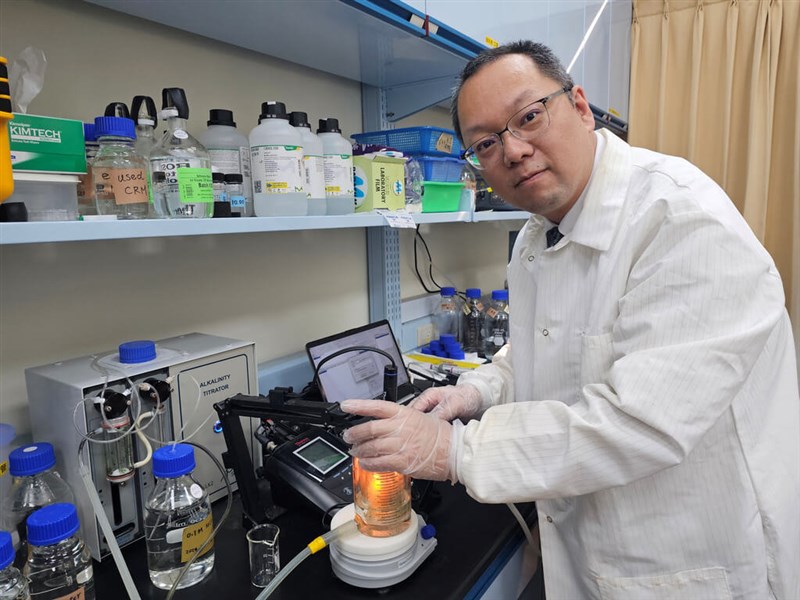Study shows artificially alkalinized seawater helps absorb more CO₂

Taipei, Sept. 18 (CNA) A study by a Taiwan-based researcher has found that artificially alkalinized seawater can absorb more carbon dioxide (CO₂), helping mitigate the greenhouse effect.
Lui Hon-kit (雷漢傑), an associate professor in the Department of Oceanography at National Sun Yat-sen University, conducted a time-series analysis using 26 years of data from the South China Sea and led the world's first study demonstrating the feasibility of ocean alkalinity enhancement (OAE), the university said Thursday.
OAE is a geoengineering technique designed to enhance seawater's ability to absorb CO₂. Boosting alkalinity, it helps counteract ocean acidification caused by human-generated CO₂, with a focus on approaches that keep the carbon footprint low.
About a quarter of the greenhouse gas emissions (26 percent) is absorbed by the ocean through air‑sea CO₂ exchange, Lui wrote.
Citing data collected from seawater within 10 meters of the surface between 1999 and 2024 at the South-East Asia Time-series Study (SEATS) station, Lui said total alkalinity increased annually by 0.56 micromoles per kilogram.
As a result, seawater in the area absorbs 28 percent more CO₂ than would be expected from CO₂ equilibrium with the atmosphere. This helps recover some of the losses in pH and calcium carbonate saturation lost due to acidification, he noted.
Lui said OAE research is still in its early stages, and the long-term effects of the technique on ocean carbonate chemistry had not been explored before his study.
"The SEATS case provides a regional perspective that supports the global understanding of long-term seawater alkalinization," he said.
Liu's paper has been published in Geophysical Research Letters and is available for download.
-
Business
Infiniti slashes QX60 price by NT$300,000 after tariff cut
03/03/2026 09:38 PM -
Culture
2026 Dajia Mazu pilgrimage to start on night April 17
03/03/2026 09:08 PM -
Society
1 worker dies, 3 injured after inhaling noxious gas at Kaohsiung factory
03/03/2026 08:39 PM -
Society
3 Taoyuan airport-adjacent stations open to bicycles starting March 10
03/03/2026 08:33 PM -
Society
Magnitude 5.0 earthquake shakes southern Taiwan
03/03/2026 08:17 PM